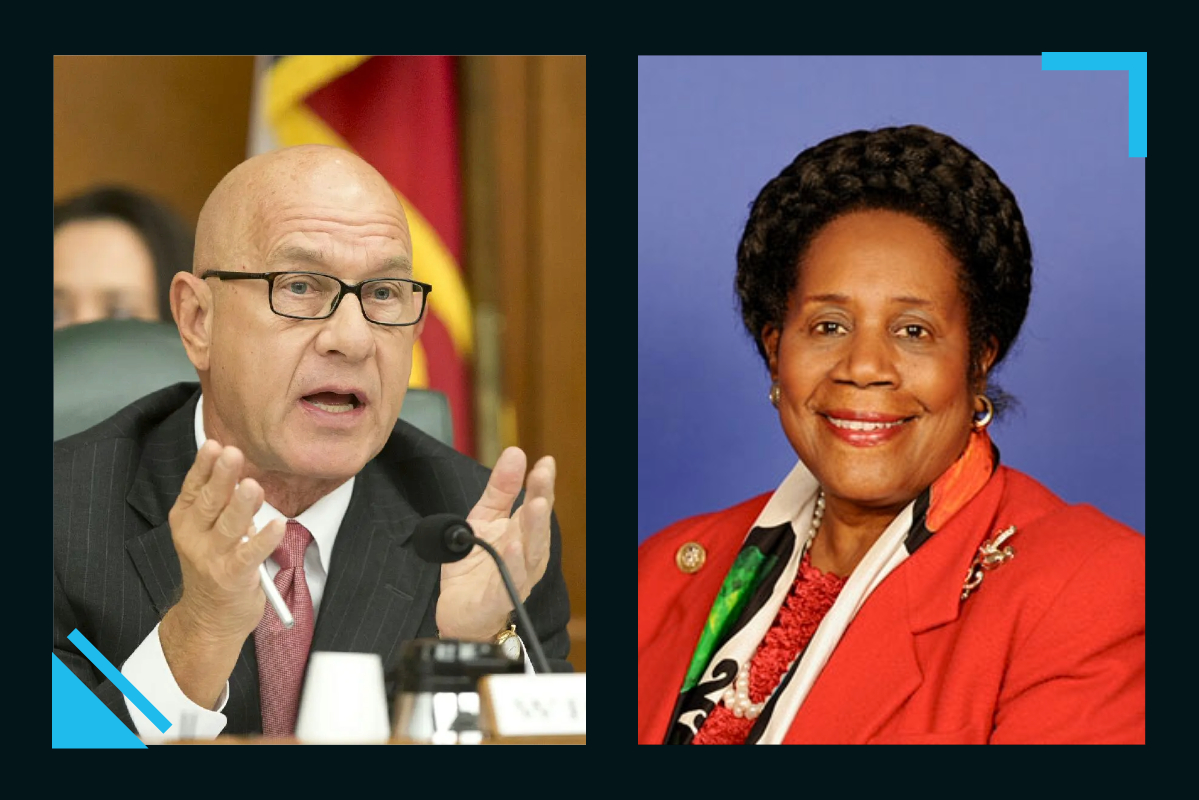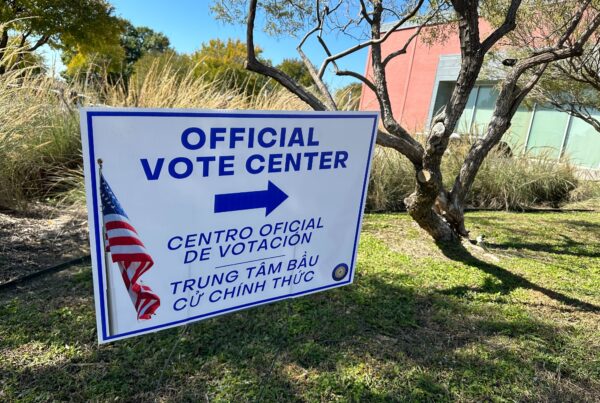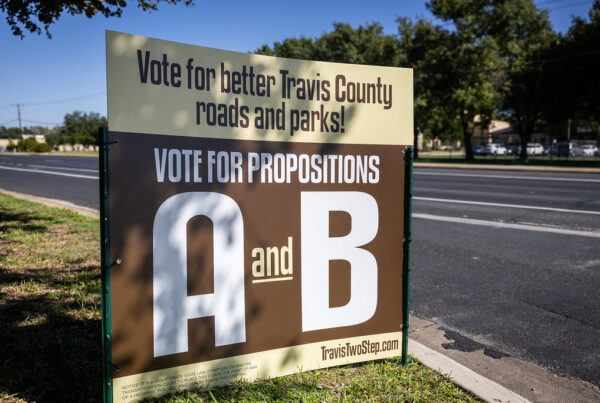In Houston, the mayor’s race is headed for a runoff between U.S. Rep. Sheila Jackson Lee, and State Sen. John Whitmire.
Incumbent Sylvester Turner is term-limited, and couldn’t run again. With 18 candidates on the ballot, a runoff was widely expected.
Reneé Cross, senior executive director and researcher at the University of Houston’s Hobby School of Public Affairs, says Houston is a Democratic city, so it’s not surprising that the mayor’s race comes down to a contest between two longtime powers in Houston politics.
Cross joined Texas Standard to discuss. Listen to the interview above or read the transcript below.
This transcript has been edited lightly for clarity:
Texas Standard: So we’re talking about 90% of the votes counted here. John Whitmire has around 43% of the vote. He’s a veteran state senator. Sheila Jackson Lee, a U.S. congresswoman, had close to 36%. The Hobby School did some polling on this race. Anything surprising in those numbers for you?
Renée Cross: No, actually, not to pat ourselves on the back to my hunch, but actually our surveys are pretty consistent with what we saw last night. You know, even with that crowded race, it was essentially a two-candidate race between Sen.Whitmire and Congresswoman Jackson Lee.
» MORE ELECTION NIGHT COVERAGE: Here’s how Texas voted on the 14 statewide propositions
What does this come down to? Name recognition? We should point out that mayoral contests in Texas are, technically speaking, nonpartisan. But I think a lot of people are sort of trying to parse out the differences or the distinctions between Whitmire and Jackson Lee. It’s possible that they represent different wings of the Democratic Party, and that’s how voters were casting their ballots. What do you make of that?
That’s exactly right.
Now, Houston is a Democratic city. However, I would say it’s a moderate Democratic city. And Sen. Whitmire was able to build this coalition that appealed not only to maybe some moderate Democrats, but in this case more importantly, to moderate Republicans and perhaps even conservative Republicans and independents.
I mentioned that this was a really crowded field, and some of the other candidates in that field spent considerable money on the campaigns. Did any of them do particularly well?
No. You know, money was certainly an advantage that Sen. Whitmire had. He spent more than twice as much, certainly more than twice as much, as the congresswoman.
But Gilbert Garcia, who ended up tied for third place with 7%, spent over $3 million, much of it his own. And to spend, you know, that type of money and come out with 7%, especially when the other person at 7% spent a little over $120,000, I would say Mr. Garcia is lucky to be wealthy.
Very interesting. And we should point out that Gilbert Garcia, who is the former chair of the Metropolitan Transit Authority of Harris County, never cracked double digits, according to the poll count. So we move now into runoff mode. What do you expect to hear and see from Whitmire and Jackson-Lee?
I think we’re going to see and hear a lot of the same. Jackson Lee is going to come after Sen. Whitmire. She, as well as Gilbert Garcia and the other candidates, continually criticize Sen. Whitmire. Again, being a Democratic city, part of the criticism was aimed at his support among Republicans. So I think we’ll see more of that.
However, again, the money advantage that Sen. Whitmire has is overwhelming. He has about $4 million on hand at this point. She [Jackson Lee] has a little over $108,000. So in order for her to get that message out, that criticism, for example, she’s going to have to raise a considerable amount of money.
I’m curious about whether or not Houston voters were generally engaged in this process. Did you was this getting a lot of. Was this is sparking a lot of conversation around Texas’s biggest city?
Well, I would say that it sparked conversation. It certainly had good media coverage.
However, turnout does not look to be anything to get excited about. I haven’t seen any official numbers yet, but it appears that the turnout for the mayoral election was just over 20%. We’re looking at around 21% turnout. This is a wide open seat. In 2015, when the seat was last open, that was a 27% turnout. So we’re considerably down since then.













